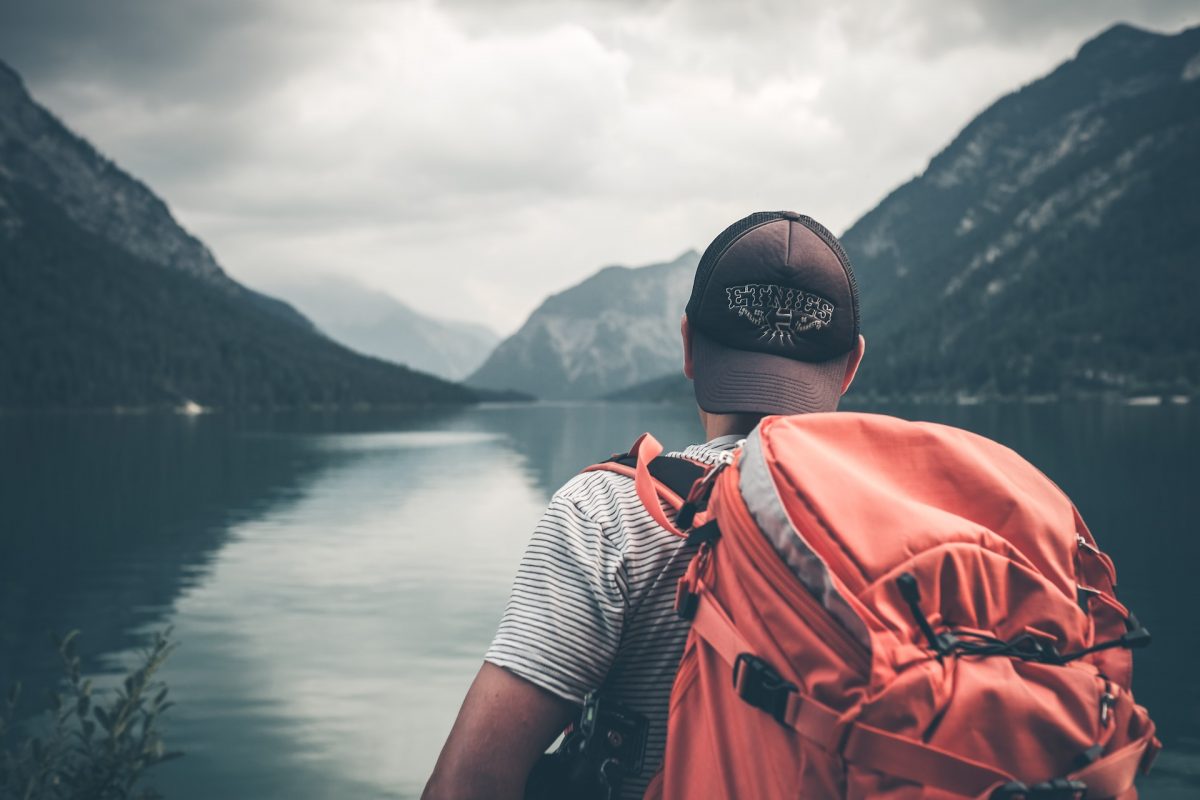How To Travel Safely As A Student: Tips And Tricks

As a student, traveling can be an exciting yet daunting experience. Whether you’re planning a spring break trip, embarking on a study abroad program, or just satisfying your wanderlust, safety should be your top priority. This comprehensive guide offers tips and tricks to ensure you travel safely and maximize your adventures.

Image from Unsplash
Preparation Before the Trip
The secret to a successful and stress-free travel experience lies in preparation. Here are five key areas you should focus on before starting your journey.
Complete All Academic Tasks
Before switching to vacation mode, ensure you’ve tied up all academic loose ends. This could include:
-
Submitting assignments: Ensure all coursework, projects, and papers are submitted. If some deadlines overlap with your travel dates, try a write my essays online service to help you with essays and submit them on time.
-
Communicate with professors: Tell them about your travel plans, especially if you miss any classes.
-
Make sure all extracurricular activities are also submitted.
-
Reading ahead: Try to get a head start on any reading or assignments due after your trip.
The last thing you want is to be stressed about schoolwork while trying to explore a new place. However, you do not want to waste your time while taking flights or long drives. So, you can read some inspirational articles, Writing Universe guides, manuals, and tips for academic writing and editing
Verify Your Travel Documents
-
Passport and visas: Double-check that your passport is valid for at least six months from your return date. Also, make sure you have the necessary visas.
-
Travel permits: Some regions require special permits, which can take time to process.
Set Up a Travel Itinerary
Planning your days can help you make the most of your trip:
-
Book in advance: Popular attractions often have long waiting lines or may be fully booked.
-
Local events: Check if there are any local events or festivals you’d like to experience.
Stock Up on Essentials
Make sure to pack not just clothes but also other essentials like:
-
First-aid kit: Basic items like band-aids, antiseptics, and pain relievers.
-
Local currency: While many places accept credit cards, having some cash is always good.
Check the Weather and Pack Accordingly
-
Weather apps: Use apps like AccuWeather to get a reliable forecast for your destination.
-
Layering: Instead of packing heavy, opt for clothes you can layer.
-
Use a packing app or list to ensure you don’t forget anything crucial.
Preparation is the key to a successful trip. The more you prepare, the less you have to worry about, letting you fully immerse yourself in the travel experience. So, get your homework done, pack smart, and get ready for an amazing journey!

Image from Unsplash
Budget-Friendly Accommodations
Accommodation is often one of the biggest expenses when traveling. But worry not, there are plenty of affordable options for students:
-
Hostels: A popular choice among young travelers, hostels are budget-friendly and offer a sense of community.
-
Airbnb: Look for places with high ratings and reliable hosts. Make sure to read the reviews!
-
Student discounts: Some hotels offer special rates for students, so always ask before booking.
-
Home exchanges: Websites like HomeExchange allow you to swap homes with someone in your destination.
-
Always check the location’s safety ratings and reviews. The cheapest option is not always the safest!
Travel Insurance
One of the most overlooked aspects of travel is insurance. There are two types you should consider:
-
Health insurance: Make sure you’re covered internationally, or purchase a travel-specific plan.
-
Travel insurance: Covers trip cancellations, lost items, and other emergencies.
-
Providers like World Nomads offer specialized plans tailored for student travelers.
-
Always read the fine print to understand what is and isn’t covered.
Local Laws and Customs
Ignorance of the law is no excuse, and this is especially true when you’re traveling in a foreign country. Being well-informed about the local laws and customs of your destination is crucial for a hassle-free and safe trip. Here’s what you should look into:
Familiarize Yourself with Local Laws
-
Drug laws: Some countries have extremely strict drug laws that may not be obvious to visitors. A minor possession could lead to serious legal trouble.
-
Alcohol regulations: The legal drinking age varies from country to country. Some countries, particularly in the Middle East, have strict laws against alcohol.
-
Traffic laws: If you plan on driving, understand the local road rules. In some countries, traffic moves on the left, and speeding fines can be hefty.
-
Public conduct: Laws about public behavior can differ greatly. Acts like jaywalking, littering, or even public displays of affection could be illegal.
Understand Local Customs and Etiquette
-
Dress code: In some cultures, modest dressing is not just a suggestion but a requirement, especially in religious places.
-
Tipping: The tipping culture varies around the world. In some countries, tipping is considered rude, while in others, it’s expected.
-
Greetings: Familiarize yourself with the common forms of greeting at your destination. A handshake might be universal, but a bow or a cheek kiss could be the local norm.
-
Photography: Always ask for permission before taking photos of people, especially in remote communities or religious sites.
Research Restricted and Controlled Items
-
Food and plants: Countries often have restrictions on bringing in certain types of food and plants to protect local ecosystems.
-
Medications: Some over-the-counter medications in your home country might be controlled substances elsewhere.
-
Cultural artifacts: Beware of accidentally purchasing or exporting restricted cultural property or artifacts.
Recommended Resources:
-
U.S. Department of State’s Country Information: Offers comprehensive information on local laws and customs for every country.
-
International SOS: Provides excellent advice on travel risks, including legal aspects.
-
Lonely Planet Guides: These often have a section on local laws and customs.
-
Print out or take a screenshot of important legal guidelines and emergency contact numbers. Physical copies can be a lifesaver when digital tools fail.
Knowing and respecting the local laws and customs ensures a smoother travel experience and helps you become a more responsible and ethical traveler. Always remember, when you are in a foreign country, you are subject to its laws. Therefore, a little research goes a long way in avoiding unnecessary complications.
Staying Connected
Staying connected while traveling is more than just posting Instagram pics. It’s also about safety:
-
Local SIM cards: Often cheaper than roaming charges, and they allow you to make local emergency calls.
-
Portable Wi-Fi devices: Useful for multiple people or if you have multiple devices.
-
VPN services: Keep your online activities secure, especially when using public Wi-Fi networks.
-
Apps like WhatsApp and Skype also offer cheap international calls and messages.
Health Precautions
Better be safe than sorry:
-
Vaccinations: Make sure you’re up-to-date on routine shots and any specific vaccines required by your destination.
-
Travel medicines: Bring necessary prescription medicines and general medicines for cold, fever, and allergies.
-
Personal hygiene: Carry hand sanitizer and tissues at all times.
-
Websites like CDC Travelers’ Health offer great resources.
Essential Gear for Student Travelers
Don’t forget these must-haves:
-
Power bank: A lifesaver for keeping your devices charged.
-
Travel adapter: Different countries have different plug types, so an adapter is essential.
-
Security locks: Useful for securing your bags or hostel lockers.
-
Travel pillow: A compact, inflatable travel pillow can make long journeys more comfortable.
-
Water purification tools: Consider a portable water filter or purification tablets, especially if you’re traveling to places where tap water isn’t safe.
-
Multi-tool: A compact multi-tool can help with minor repairs and tasks, like cutting fruits or tightening a loose screw.
-
Local maps: Even in the age of smartphones, a physical map can be helpful for navigating areas with poor signal.
-
Lightweight rain jacket: Weather can be unpredictable; a lightweight, packable rain jacket can be a lifesaver.
Final Thoughts
Traveling as a student offers a world of experiences, from cultural immersion to personal growth, but it’s essential to be well-prepared and informed to make the most of your journey. By focusing on safety through budget-friendly accommodations, comprehensive travel insurance, and being savvy about local laws and customs, you set the stage for a fulfilling and worry-free adventure.
Don’t underestimate the power of preparation, whether it’s completing your academic tasks or packing the right essentials. So go ahead, arm yourself with these tips and tricks, and dive into the exciting, enriching world of student travel with confidence and peace of mind.

